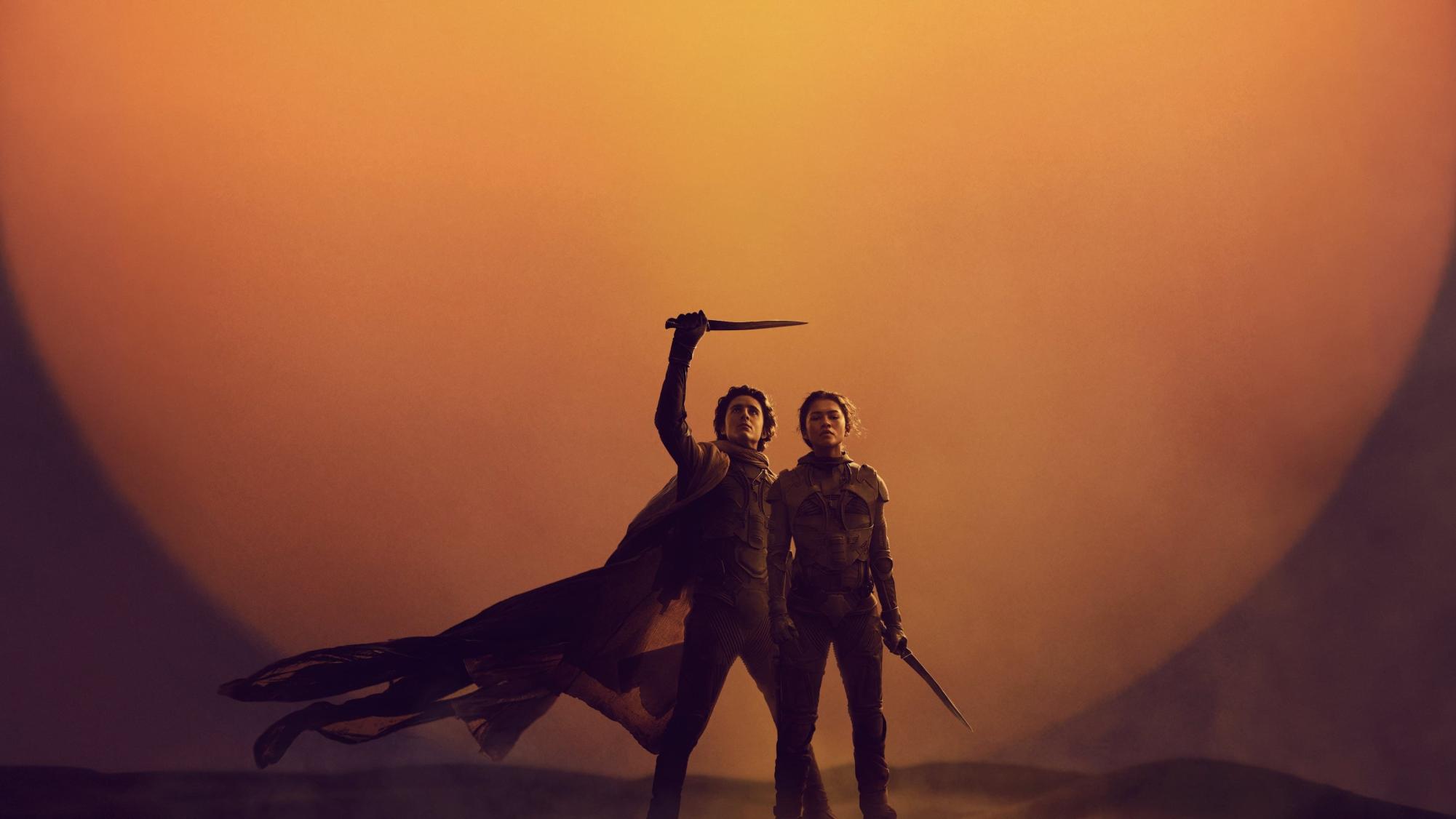Editor’s note: This review contains spoilers for “Dune: Part 2”
A good science fiction film transports its audience to another world for an hour or two; a great one sears that world into a million minds once and for all. Ever since David Lynch’s disappointing 1984 film adaptation of “Dune,” readers have been waiting for a franchise to rival the likes of Peter Jackson’s “Lord of the Rings” and George Lucas’ “Star Wars.” Frank Herbert’s soft science fiction masterpiece is dizzyingly complex and unorthodox at times, making it a more challenging story to put to the screen. What director Denis Villeneuve has accomplished with exceptional writing, balanced CGI, and the story of a young messiah may make it the cinematic event of the year.
“Dune: Part 2” is “The Empire Strikes Back” to Part 1’s “A New Hope”: a grander sequel to an already promising start. While Part 1 sets the scene on the desert planet Arrakis and establishes the precarious political position of House Atreides, Part 2 accelerates Paul Atreides’ journey while delving into the more mystical side of “Dune.” It simultaneously expands the world and magnifies the intense power struggles between houses, individuals, and societies.
Picking up from “Dune: Part 1,” Paul Atreides (Timothee Chalamet), our antihero and heir to Arrakis, comes into manhood and joins a band of Fremen after defeating the fighter Jamis in a knife duel. At this point, Paul realizes that his visions of the future are not set in stone and can change at the swing of a blade. Stilgar (Javier Bardem), a coarse yet curious Fremen leader, takes Paul under his wing while Paul’s mother, Lady Jessica (Rebecca Ferguson), becomes the Fremen’s new Reverend Mother. She pushes Paul to fulfill the Bene Gesserit prophecy of the Kwisatz Haderach, a male individual with genetic memory and prescience. Now that he is accepted by the Fremen, he seeks to remain faithful to his original intentions for the sake of Chani (Zendaya), his lover and moral compass. The screenwriters’ manipulation of Chani’s character in the novel forces brutal clarity on Paul’s actions, no matter how noble they seem to be. Through her eyes, we witness Paul’s desire for power change his plans for Arrakis and its people. Praise from Stilgar and the pressure of his lineage only give him more reason to declare himself the Lisan Al-Gaib and use Fremen power to challenge the Emperor. No one, not even Chani, can pull him from this frightening path to enlightenment.
Every component of the film, from the cinematography and soundtrack to the actors, contributes intentionally to an epic, theater-worthy experience. In both “Dune” movies, Villeneuve impresses upon viewers the concept of scale through stunning visuals and sounds. Compared to busier sci-fi settings like cyberpunk cities, the endless backdrop of Arrakis’ barren waves allows for a range of shots both awe-inspiring and intimate. Massive spice harvesters, sandworms, and arenas juxtaposed with the central yet minuscule figures of the story add a sense of gravity to the events. With so much attracting the eye, it is easy to overdo the CGI and special effects, but Villeneuve finds a perfect balance that doesn’t disturb the immersion experience.
Hans Zimmer outdoes himself yet again with this film’s breathtaking soundtrack — a deathly storm of instruments and voices that assaults and recedes as needed for each scene. The dramatic musical build during Paul’s ride on a sandworm rouses primal emotions of triumph, while the galactic silence during the final duel holds the audience in sway. Each actor in this movie disappears into their role on screen, with standout performances from Austin Butler, Zendaya, and Lea Seydoux. Butler’s Feyd-Rautha, the bloodthirsty nephew of big bad Baron Harkonnen, is somewhat majestic in his psychotic persona, uncomfortably mirroring Paul Atreides in more ways than one.
The unforgiving landscape of Arrakis lends itself to a fervor of many shades within Fremen values and beliefs: while one betrayal could mean the deaths of thousands, one man (or false prophet) could make Dune a fertile paradise. We come to understand this dynamic through the eyes of Princess Irulan (Florence Pugh) who learns that the Bene Gesserit planted the prophecy of Lisan al-Gaib into Fremen society centuries before Paul’s coming, using contrived religion to control an entire planet. There is a scene in an underground “sietch” where masses of Fremen assemble to behold Paul in the flesh. At first glance, you can tell that there are at least hundreds of people present. As the scene sinks in, you notice circles of light spotting a congregation that reaches and spreads an unbelievable distance. The cinematography is simply stunning and hints at the depth of Bene Gesserit’s infiltration. The film is somewhat inaccurate when depicting the Fremen’s widespread religious fanaticism, but this specific change allows Paul to gain zealous support in a much shorter time frame. It also intensifies crucial themes of Herbert’s story, namely the exploitation of religion (and its followers) and the dangers of “charismatic leaders.” In the end (literally), Chani’s humanity, emotional turmoil, and defiance of Paul and what he represents, remind us of our own voices in the sandstorm.
“Dune: Part 2” is not just a triumph of science fiction cinema. It sets a new standard for any movie boasting a budget of hundreds of millions. Every single dollar went into the final product, and the sheer dedication to story and craft on all levels of production is outstanding. This degree of quality and depth is what we, as a general audience, deserve from blockbusters. As for readers and fans of Dune, no vision is unanimously loved, but it is safe to say that Villeneuve’s “Dune” will live on as one of the greats.
Image courtesy of ABC









